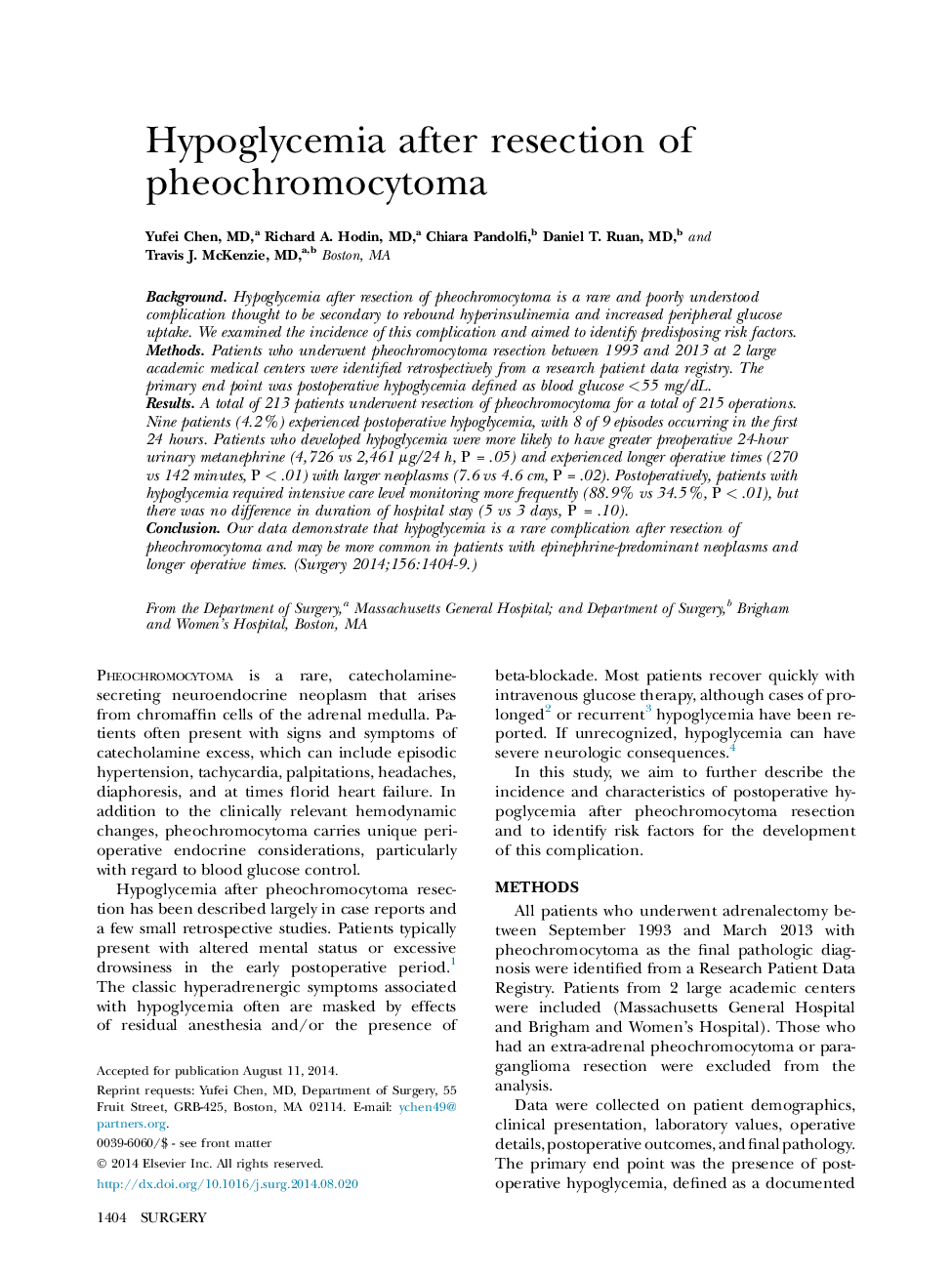| Article ID | Journal | Published Year | Pages | File Type |
|---|---|---|---|---|
| 4307424 | Surgery | 2014 | 6 Pages |
BackgroundHypoglycemia after resection of pheochromocytoma is a rare and poorly understood complication thought to be secondary to rebound hyperinsulinemia and increased peripheral glucose uptake. We examined the incidence of this complication and aimed to identify predisposing risk factors.MethodsPatients who underwent pheochromocytoma resection between 1993 and 2013 at 2 large academic medical centers were identified retrospectively from a research patient data registry. The primary end point was postoperative hypoglycemia defined as blood glucose <55 mg/dL.ResultsA total of 213 patients underwent resection of pheochromocytoma for a total of 215 operations. Nine patients (4.2%) experienced postoperative hypoglycemia, with 8 of 9 episodes occurring in the first 24 hours. Patients who developed hypoglycemia were more likely to have greater preoperative 24-hour urinary metanephrine (4,726 vs 2,461 μg/24 h, P = .05) and experienced longer operative times (270 vs 142 minutes, P < .01) with larger neoplasms (7.6 vs 4.6 cm, P = .02). Postoperatively, patients with hypoglycemia required intensive care level monitoring more frequently (88.9% vs 34.5%, P < .01), but there was no difference in duration of hospital stay (5 vs 3 days, P = .10).ConclusionOur data demonstrate that hypoglycemia is a rare complication after resection of pheochromocytoma and may be more common in patients with epinephrine-predominant neoplasms and longer operative times.
